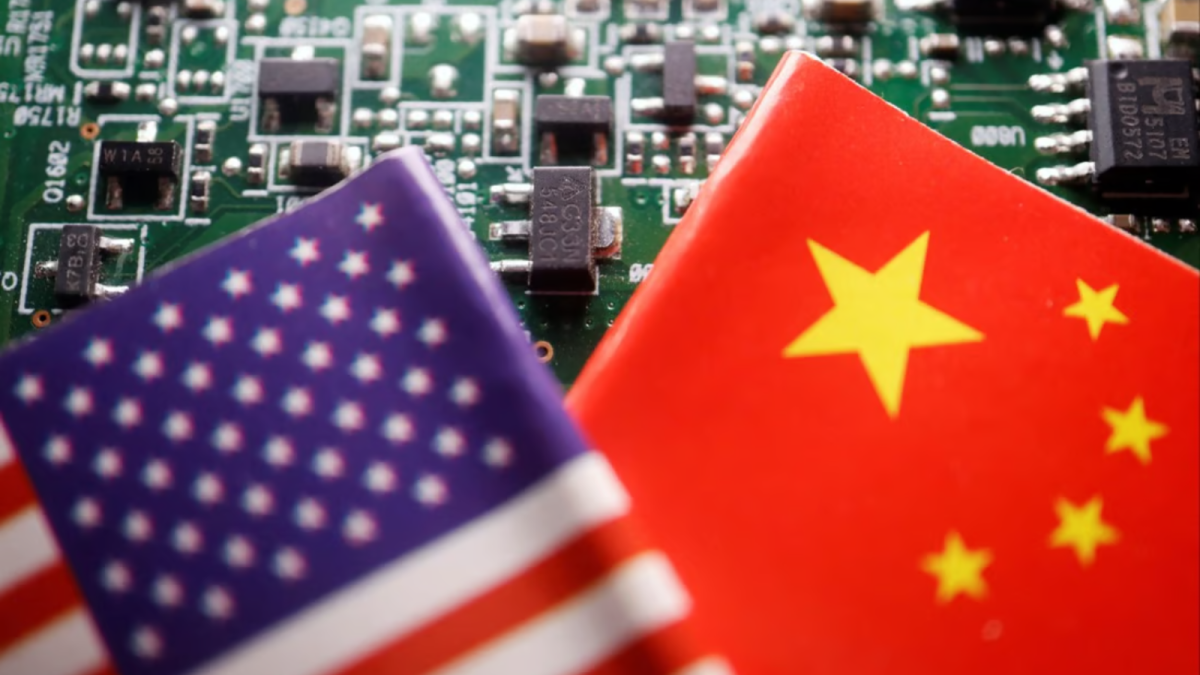|
WASHINGTON, DC – As first reported by the Financial Times, Chairman Mike Gallagher (R-WI) of the House Select Committee on the Chinese Communist Party wrote to President Biden ahead of the Administration's widely reported executive order to curtail certain US outbound investment to the People's Republic of China (PRC). Chairman Gallagher urged the President to "meet the moment with urgency, clarity, and breadth required to address the serious national security issues we face."
Gallagher called on the President to prioritize transparency while adopting several core principles in the executive order, namely:
- Include both private and public market investments flowing to China in new restrictions;
- Restrict US capital from flowing to organizations connected to the CCP's genocide, the CCP's technological rise, and the Chinese military;
- Protect shareholder rights by forcing Chinese companies to meet the same due diligence standards as American companies;
- Ensure these investment restrictions are predictable and provide certainty to investors. Avoid creating an onerous, case-by-case screening process;
- Consult with allies and partners before implementing new restrictions and urge them to adopt parallel restrictions on investing in China.
After delivering the letter to the President, Chairman Gallagher said, "If American capital continues to flow to Chinese military companies, we are at risk of funding our own destruction. Wall Street needs to recognize that investing in critical technology sectors in the PRC endangers our service members, imperils the targets of CCP human rights abuses, and enhances systemic risks for the global economy. That's a deadly cocktail the American people didn't order and don't want to be served."
View a copy of Chairman Gallagher's letter to President Biden HERE or read below:
-------------
Dear President Biden,
I write today about your widely reported draft executive order restricting certain outbound U.S. capital investment in critical technologies under development in the People’s Republic of China (PRC). While I applaud you for taking on the vital issue of outbound investment, I urge you to consider adopting several core principles that will ensure your E.O. meets the moment with the urgency, clarity, and breadth required to address the serious national security issues that we face.
As you know, some U.S. investment flowing into the PRC poses a significant national security risk, exposes Americans to material and systemic financial risks, and makes them complicit – often unwittingly – in human rights abuses. Though the exact total is unknown, by one estimate, over $200 billion of U.S. capital is invested in PRC companies through private markets, while over $1.1 trillion of American capital is invested through public markets in PRC stocks and bonds. A sizeable portion of that investment directly finances PRC technology companies with documented connections to the Chinese military and the Chinese Communist Party’s (CCP) abhorrent human rights abuses.
Despite these clear risks and the U.S. Government’s longstanding efforts to address national security threats stemming from inbound foreign investment, no mechanism exists for the U.S. Government to require disclosure of, much less restrict, outbound capital flows into such foreign adversary companies. As Congress debates competing approaches – including a so-called “outbound CFIUS” and the imposition of aggressive sanctions against known PRC military companies – I urge you to take meaningful first steps towards effective and balanced outbound investment rules in the interim.
This must start with transparency. We need a full accounting of total U.S. risk exposure and the final beneficiaries of U.S. investment in the PRC. The lack of data endangers our national security, is antithetical to our market system, and undercuts U.S. investors’ ability to make informed decisions.
In addition to basic transparency, U.S. outbound investment rules should also restrict problematic investments, guided by several core principles.
First, both private investments, such as venture capital and private equity funding and limited partners in those funds, and public market investments, including U.S. holdings of PRC stocks and bonds and trading of investment funds that include PRC companies, should be addressed. Public market investments represent the majority of U.S. capital flows to the PRC. Any rules that exempt them will fail to address the bulk of the national security threat.
Second, investments in sectors relevant to national security and central to the CCP’s technological rise, as well as those connected to the PRC’s forced labor and genocide, should be restricted. This could start with five to six priority sectors from the critical and emerging technologies identified by your Office of Science and Technology Policy.[Follow-on rules could include the remaining sectors on that list as well as those prioritized by the PRC, for example in its 14th Five-Year Plan for National Economic and Social Development and Long-Range Objectives for 2035.Those rules should ensure that U.S. money does not support the ongoing People’s Liberation Army (PLA) buildup, facilitate the CCP’s human rights abuses or techno-totalitarian surveillance system, or deepen our dependency on the PRC in critical supply chains.
Third, in addition to national security concerns, outbound investment rules should safeguard shareholder rights, hold PRC companies to comparable due diligence standards as U.S. companies, and protect investors, including by addressing the obvious risks posed by variable interest entity structures.
Fourth, the rules should give investors and companies certainty and predictability. I urge you to avoid creating an onerous new case-by-case screening process that would be unwieldy, impractical, and unnecessarily burdensome on the U.S. private sector. In addition, to enable investors to adapt and comply, I urge you to provide a clear but expedited regulatory “runway.”
Fifth, while the United States should lead the formulation and implementation of an outbound approach, allies and partners should be closely consulted in advance and persuaded to follow suit with their own parallel restrictions on investment into PRC companies.
For too long, America has funded the CCP’s military buildup, technological ambitions, and human rights abuses and allowed the CCP unconstrained access to our capital markets and the dynamism and efficient capital allocation that they enable.
Thank you for your attention to this matter.
|

